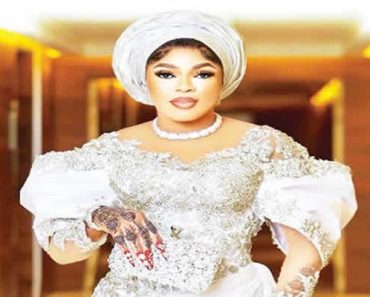Nigeria, a country located in West Africa, is known for its rich cultural diversity and vibrant ethnic tapestry. With over 250 distinct ethnic groups, Nigeria is a melting pot of various traditions, languages, and customs. Tribes play a vital role in Nigerian society, forming the backbone of the country’s cultural identity and heritage. We will delve into the strongest tribes in Nigeria, exploring their historical significance, cultural practices, and contributions to the nation.READ FULL ARTICLE HERE>>>>
Strongest Tribes In Nigeria
1.Hausa Tribe
The Hausa tribe is one of the largest ethnic groups in Nigeria, primarily concentrated in the northern regions. With a population exceeding 70 million, the Hausa people have had a significant impact on Nigeria’s political and economic landscape. Known for their strong adherence to traditional values, the Hausa tribe cherishes cultural practices such as the durbar festival, henna art, and traditional attire like the babban riga. They are also renowned for their mastery of trade, agriculture, and craftsmanship. Read Richest Men In Cross River State & Net Worth
2. Fulani Tribe
JUST IN: Jnr Pope: Moment Regina Daniels’ mom appeals to water spirits
The Fulani tribe, also referred to as Fulbe, is a nomadic pastoralist group that spans across several West African countries, including Nigeria. The Fulani people played a vital role in the spread of Islam in the region and have a rich cultural heritage. Known for their cattle rearing and migratory lifestyle, the Fulani tribe has made significant contributions to the economy and social fabric of Nigeria, particularly in the northern regions. They also wield political influence, with prominent Fulani figures holding key positions in government.
3. Igbo Tribe
The Igbo tribe is renowned for their rich history, vibrant culture, and entrepreneurial spirit. With a population of over 40 million, the Igbo people are widely distributed across Nigeria, with a strong presence in the southeastern region. The Igbo tribe has made substantial contributions to Nigeria’s economic landscape, with Igbo entrepreneurs involved in various sectors such as trade, manufacturing, and entertainment. Igbo cultural practices, including the New Yam Festival and masquerade ceremonies, showcase their deep-rooted traditions and customs.
4. Yoruba Tribe
The Yoruba tribe boasts an ancient civilization that dates back thousands of years. With over 40 million people, the Yoruba tribe is primarily concentrated in southwestern Nigeria. The Yoruba people have a rich cultural heritage, with a complex pantheon of gods, renowned artwork, and vibrant festivals such as the Olojo Festival and Osun Osogbo Festival. They have made significant contributions to the arts, music, and literature, with notable figures like Wole Soyinka and Fela Kuti emerging from Yoruba roots. Additionally, the Yoruba tribe has a strong presence in Nigerian politics, producing influential leaders throughout history.
5. Benin Tribe
The Benin tribe is known for its historical significance and cultural splendor. The Benin Kingdom, which existed from the 13th to the 19th century, was one of the most powerful and sophisticated empires in West Africa. The Benin people are renowned for their exquisite bronze casting, intricately designed masks, and unique cultural practices. The monarchy plays a central role in Benin society, with the Oba (king) holding significant traditional and ceremonial powers. The Benin tribe takes pride in preserving its cultural traditions and celebrating festivals such as the Igue Festival.
6. Ibibio-Efik Tribe
The Ibibio-Efik tribe primarily resides in the southeastern part of Nigeria, particularly in Akwa Ibom and Cross River states. The Efik people have a rich heritage of monarchy, with the Obong of Calabar serving as the traditional ruler. The Ibibio-Efik tribe is known for its distinct traditional attires, such as the George wrapper and the Ekpo. Ekpo is a secret society among the Efik people that plays a crucial role in maintaining social order and upholding cultural traditions. The Ibibio-Efik tribe is also celebrated for its colorful dances, such as the Ekombi and Abang dances, as well as its vibrant festivals like the New Yam Festival and the Ekpe Festival.
7. Ijaw Tribe
The Ijaw tribe, predominantly residing in the Niger Delta region of Nigeria, is known for its strong connection to water and rich natural resources. Traditionally a fishing community, the Ijaw people have also been involved in the oil exploration industry, which has greatly influenced their socio-economic landscape. The Ijaw tribe has a history of political activism and has played a significant role in the struggle for resource control and the rights of their communities. Their cultural practices, such as the Ogidigbo dance and masquerades, reflect their deep-rooted traditions and heritage.
8. Itsekiri Tribe
The Itsekiri tribe is located in the Niger Delta region, mainly in Delta State, Nigeria. The Itsekiri people have a rich history that dates back to the ancient city-state of Warri. They are renowned for their fishing and trading activities, which have contributed to their economic prosperity. The Itsekiri tribe is known for its cultural practices, including the Olu of Warri kingship system and the Ogiame festival. The Itsekiri people have produced notable individuals in various fields and continue to make significant contributions to Nigerian society. Read also Richest Men In Delta State & Net Worth
9. Tiv Tribe
The Tiv tribe is one of the largest ethnic groups in Nigeria, primarily residing in Benue State. The Tiv people are predominantly agrarian, known for their farming practices and expertise in agriculture. Their farming techniques, such as the use of mounds and terracing, have contributed to food security in the region. The Tiv tribe has a unique social organization and kinship system, with strong communal ties and a rich cultural heritage. Their festivals, such as the Tor-Tiv coronation and the Yam Festival, showcase their traditions and customs.
10. Nupe Tribe
The Nupe tribe is located in central Nigeria, primarily in Niger State. The Nupe people have a rich history that dates back to ancient times and have been influential in trade and commerce. Known for their traditional governance system and social structure, the Nupe tribe has maintained their cultural practices and customs. The Nupe language, known as Gure-Kahugu, is widely spoken in the region. The Nupe people have made significant contributions to the arts, crafts, and agriculture, and their festivals, such as the Nupeland Fishing Festival, attract visitors from far and wide.
11. Igala Tribe
The Igala tribe is predominantly found in Kogi State, Nigeria, and is one of the oldest ethnic groups in the country. The Igala people have a rich history and a strong traditional leadership system. The Attah of Igala serves as the paramount ruler and custodian of Igala customs and traditions. The Igala tribe has been influential in politics and has produced notable figures who have held key positions in government. Their cultural practices, such as the Ekwe and Okoso festivals, showcase their vibrant traditions and celebrations.
Conclusion
Nigeria’s cultural landscape is a mosaic of diverse tribes, each with its own unique history, traditions, and contributions. They have played vital roles in shaping the nation’s identity and development. By recognizing and appreciating the richness of Nigeria’s tribal heritage, we can foster unity, celebrate diversity, and foster a sense of national pride.
This involves supporting cultural initiatives, promoting inter-tribal dialogue, and ensuring the inclusion and representation of all tribes in the nation’s social and political spheres. By doing so, Nigeria can harness the strength of its diverse tribes, leverage their unique perspectives, and create a harmonious and prosperous future for all its people.READ FULL ARTICLE HERE>>>>



